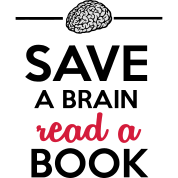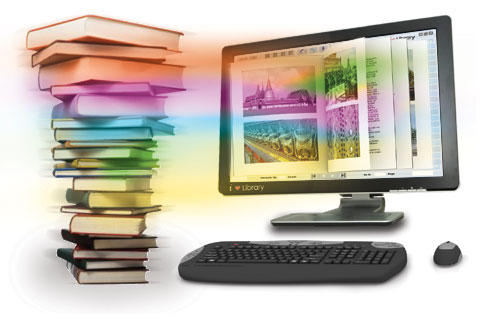A page of Addison or of Irving will teach more of style than a whole manual of rules, whilsty a story of Poe’s will impress upon the mind a more vivid notion of powerful and correct description and narration than will ten dry chapters of a bulky textbook. – H. P. Lovecraft
Maybe you’ve heard from your English professors that readers make better writers. Well, it’s true. And we’ve all probably seen those “X-number of Benefits from Reading” lists like those on Buzzfeed that explain how reading helps lower stress, potentially slows the effects of Alzheimer’s, increases your ability to empathize with others, and enhances cultural awareness and social sensitivities amongst other benefits. But if you’re working on becoming a better version of your writing self, I recommend increasing your literary intake! Oh, and scientists suggest you read more, too.

Courtesy of: http://www.spreadshirt.co.uk/
According to Psychology Today, “Neuroscientists have discovered that reading a novel can improve brain function on a variety of levels” (Bergland). A study at Emory University expl
ored the cognitive benefits of reading fiction by scanning brain activity of undergraduates who read a novel over the course of a few weeks. The left temporal cortexes in the students’ brains were highly active and engaged (the area of the brain associated with language cognition). Soooo, what does this mean? Essentially, I just proved to you how reading DOES influence the way you write because you can pick up on other styles of writing and the various ways of using new and familiar words.
In our world today, (the world of iPads, tablet, and ebooks) the process of reading is actually changing…drastically. Not only has the term “book” taken on a new electronic paperless form, but our library and bookstore system is also morphing into something more tech savvy. There is an insane amount of literature available, ebook or paper copy, so how do you even find things you want to read anymore now that everything is virtually, virtual?!
Welcome to the realm of e-libraries! You may have your own Kindle or other virtual library hooked up to your mobile tech devices, but I want to briefly introduce three of my favorite internet “libraries” that allow you to interact with other readers (kinda like Facebook).

Courtesy of: http://www.punesite.com
- GOODREADS: Here, you can create your profile and immediately start sifting through hundreds of book lists categorized by any imaginable grouping: YA fiction, Best Cover Art, Books that Should be Movies, Books that Were Better than the Movie, Romance, Dystopian, etc. You and other users can rate these books and write reviews for other users to evaluate as each member crafts his or her own “To Read” list. This is helpful because you can keep track of things you want to read or have read, and peruse what other readers like. I’m a fan.
- RIFFLEBOOKS: A similar site, Rifflebooks, allows users to navigate lists of books and send recommendations to each other, participate in book discussions, follow other users’ books lists, and “like” books. Rifflebooks, to me, has a very Pinteresty feel in terms of organizing my own lists of books and browsing through others. I like Rifflebooks because I can engage more with other readers, which contributes to the feeling that Rifflebooks is a community of readers actively interacting with one another and their literature.
- BOOKLIKES: For all of you bloggers out there, here is your book-blog-nerd-heaven. As soon as you sign up, you receive your own website url hosted by Booklikes that you can customize through different templates. You’ll get your own “Bookshelf” that graphically displays all of your books you add through the site. Not only do you get to catalog your books, but you can also write reviews, blog, and connect easily with other bloggers through Booklikes, which is free, polished, and highly functioning.
So there you have it. I’ve outlined three similar yet very different online bookish communities that will allow you to keep up with literature as the ways we encounter books is changing in our techish world. With literature at our fingertips at almost every moment, now keeping track of what we’d like to read is becoming easier as we can adapt and engage with our readings even more. I wish you all the best in your summer reading endeavors!
—Shannon, peer tutor
Bergland, Christopher. “Reading Function Improves Brain Connectivity and Function.” Psychology Today. Sussex Publishers, LLC. Jan. 2014. Web. 29 April 2015.